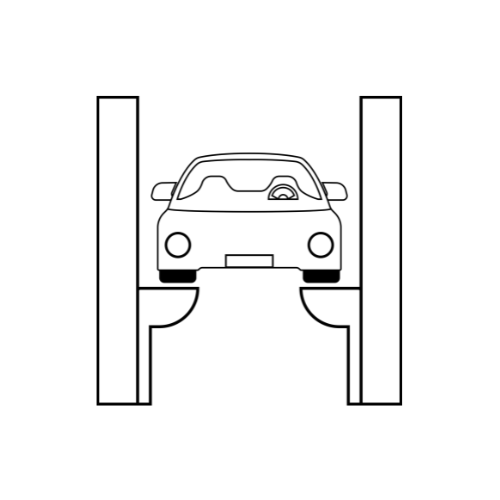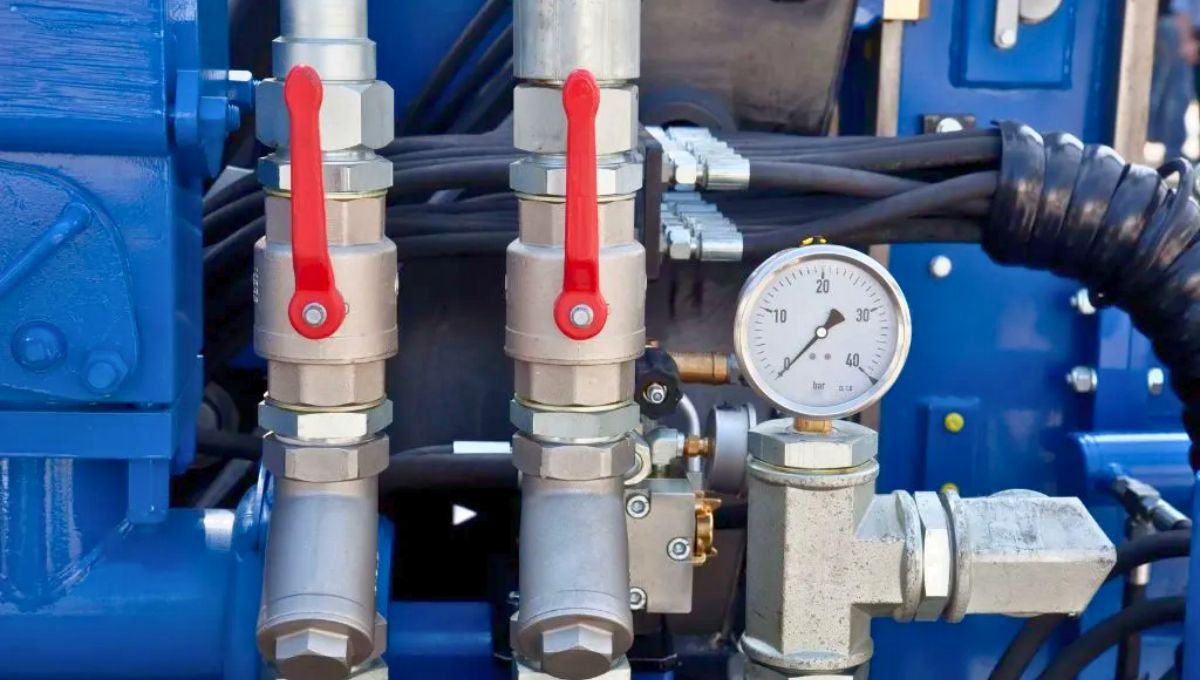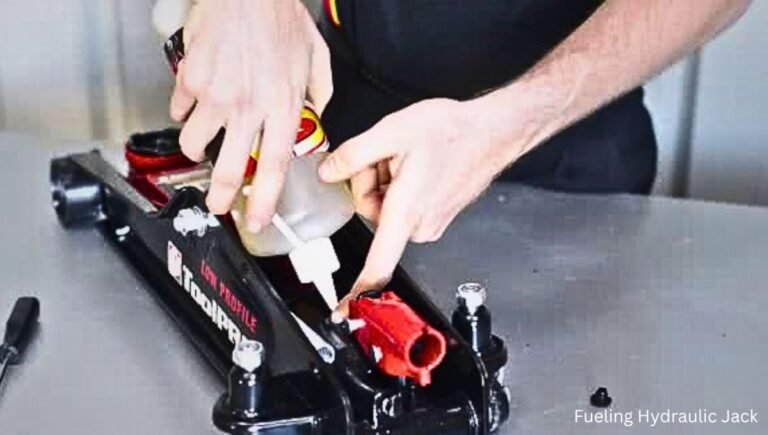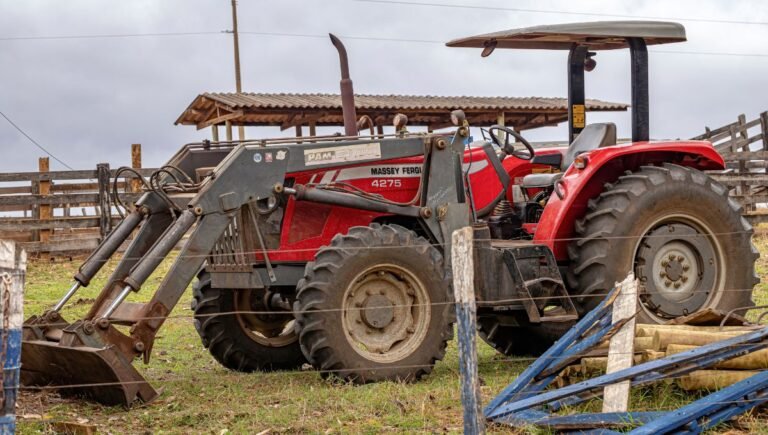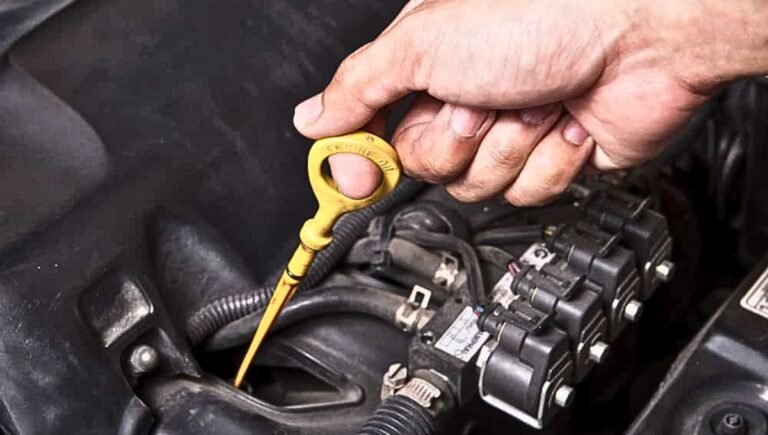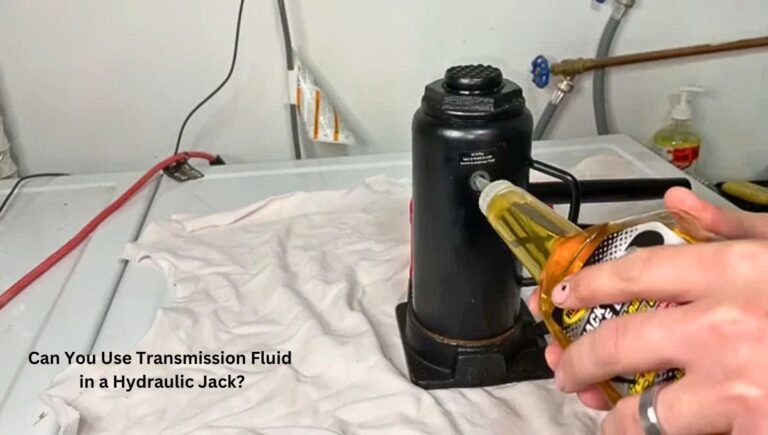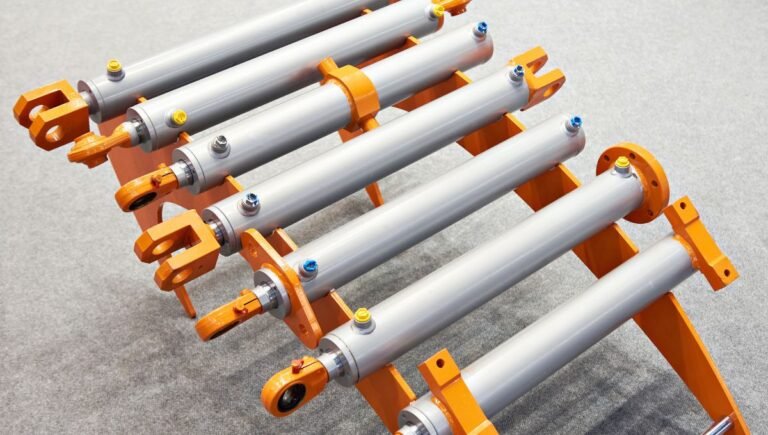How to Keep Hydraulic Fluid from Freezing? Quick Guide!
To keep hydraulic fluid from freezing, use a low-temperature hydraulic fluid and store equipment in a heated space. Regularly maintain and check the fluid levels.
Hydraulic systems are vital in various industries, especially in cold climates. Freezing temperatures can cause hydraulic fluid to thicken or freeze, leading to equipment malfunction. Selecting the right type of hydraulic fluid with low-temperature properties is crucial. Additionally, storing hydraulic machinery in a heated environment can prevent the fluid from freezing.
Regular maintenance, including checking fluid levels and ensuring the system is clean, helps in keeping the hydraulic fluid in optimal condition. Proper care and preventive measures ensure hydraulic systems run smoothly, even in freezing conditions. This approach minimizes downtime and extends the lifespan of hydraulic equipment.
The Importance Of Preventing Hydraulic Fluid Freeze
Hydraulic systems are critical in various industries. Cold weather can cause hydraulic fluid to freeze. This can lead to severe issues. Preventing hydraulic fluid freeze is essential. It ensures efficiency and longevity of hydraulic systems.
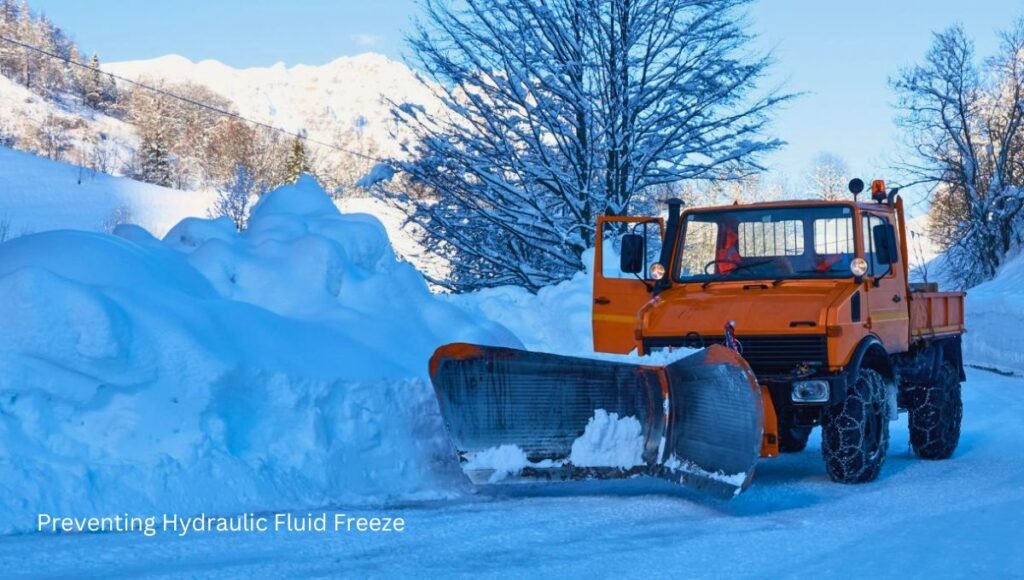
Consequences Of Frozen Hydraulic Fluid
Frozen hydraulic fluid can cause serious problems. It can lead to equipment failure. This can result in costly repairs. Some of the major consequences include:
- System Downtime: Frozen fluid can halt operations.
- Component Damage: Ice can damage hydraulic parts.
- Increased Wear: Frozen fluid increases friction.
- Safety Risks: Equipment failure can be dangerous.
Benefits Of Maintaining Fluid Integrity
Maintaining the integrity of hydraulic fluid is crucial. It prevents freezing and ensures smooth operations. Some key benefits include:
- Prolonged Equipment Life: Proper fluid prevents wear and tear.
- Improved Efficiency: Fluid at optimal temperature works better.
- Cost Savings: Less downtime means fewer repairs.
- Enhanced Safety: Reliable equipment is safer to use.
Using the right hydraulic fluid is crucial. Choose fluid with low freezing points. This ensures better performance in cold weather. Regular maintenance is also important. Check fluid levels and quality often. This can prevent many issues.
Characteristics Of Hydraulic Fluid
Hydraulic fluid plays a critical role in the operation of hydraulic systems. Its primary function is to transfer power and lubricate the components. Understanding its characteristics is essential to keep it from freezing.
Composition And Properties
Hydraulic fluid is made up of base oils and additives. Base oils can be mineral oil, synthetic oil, or water-based. Additives improve performance, reduce wear, and prevent oxidation.
- Base Oils: Mineral oil, synthetic oil, or water-based
- Additives: Anti-wear agents, antioxidants, and corrosion inhibitors
Hydraulic fluid must possess specific properties for efficient operation. These properties include viscosity, thermal stability, and compatibility with system materials.
| Property | Description |
|---|---|
| Viscosity | Resistance to flow |
| Thermal Stability | Ability to function at high temperatures |
| Compatibility | Must not react with system materials |
How Temperature Affects Fluid Viscosity
Temperature changes can significantly impact hydraulic fluid viscosity. At low temperatures, the fluid becomes thicker and flows slowly. At high temperatures, it becomes thinner and flows easily.
- Low Temperatures: Fluid thickens, reducing flow
- High Temperatures: Fluid thins, increasing flow
Maintaining optimal viscosity is crucial for system performance. Low temperatures can cause hydraulic fluid to freeze, leading to system failure. Using the right fluid for your climate helps prevent freezing.
Common Causes Of Hydraulic Fluid Freezing
Understanding the common causes of hydraulic fluid freezing is crucial. It helps in taking preventive measures to keep your machinery running smoothly. Here, we explore the primary reasons behind hydraulic fluid freezing.
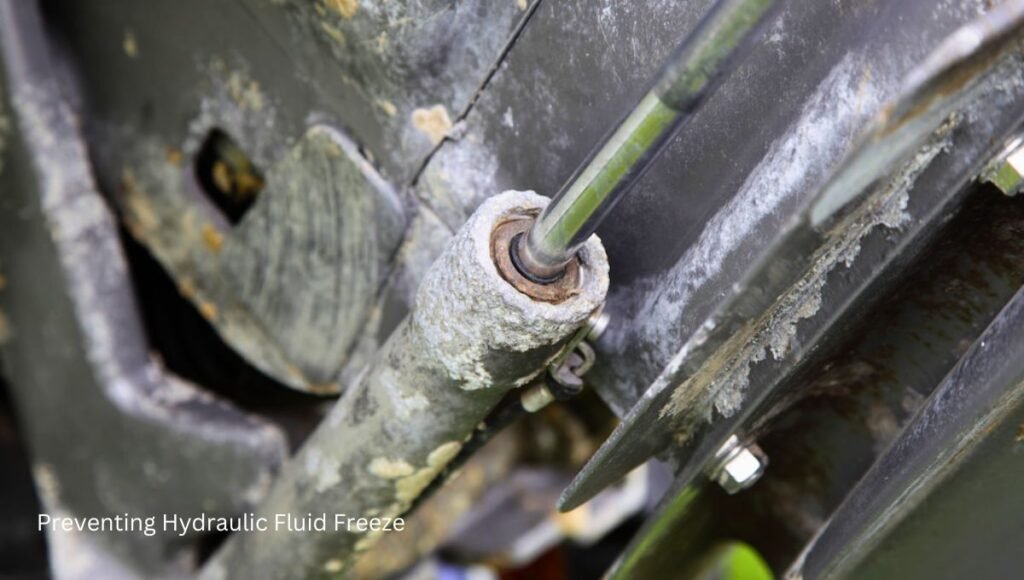
Environmental Factors
Environmental factors play a significant role in hydraulic fluid freezing. Low temperatures are a major cause. When temperatures drop, the fluid thickens and freezes. This can hinder the performance of your machinery.
Another factor is humidity levels. High humidity can lead to condensation. This moisture can enter the hydraulic system and freeze. It causes blockages and malfunctions.
Wind chill also contributes. Strong winds can lower the effective temperature. This makes the fluid more likely to freeze.
Inadequate Maintenance Practices
Proper maintenance is essential for preventing hydraulic fluid from freezing. Neglecting regular checks can lead to issues. It’s important to monitor the fluid levels and condition.
Using incorrect fluid types can also cause freezing. Some fluids are not designed for low temperatures. Always use the recommended hydraulic fluid for your machinery.
Dirty filters can restrict fluid flow. This makes it harder for the system to function in cold weather. Regularly replacing filters helps maintain fluid movement.
| Cause | Impact |
|---|---|
| Low Temperatures | Fluid thickens and freezes |
| High Humidity | Condensation and freezing |
| Wind Chill | Lowers effective temperature |
| Neglecting Maintenance | Increased freezing risk |
| Incorrect Fluid | Not suitable for cold |
| Dirty Filters | Restricted fluid flow |
Preventive Measures For Hydraulic Systems
Preventing hydraulic fluid from freezing is crucial. Cold weather can affect hydraulic systems. Take the right steps to ensure smooth operation. Below are some effective preventive measures.
Insulation Techniques
Insulating hydraulic systems can keep the fluid warm. Use proper insulation materials. Wrap hydraulic lines and reservoirs with thermal insulation. This helps retain heat and prevents freezing.
- Thermal blankets: Cover exposed parts with thermal blankets.
- Heated enclosures: Store equipment in heated spaces.
- Pipe insulation: Insulate pipes with foam or rubber materials.
Proper insulation can significantly reduce the risk of freezing. It maintains the fluid’s temperature. This ensures smooth operation even in cold conditions.
Appropriate Storage Solutions
Storing hydraulic equipment properly is vital. Store equipment in a climate-controlled environment. This prevents the fluid from freezing. Consider the following storage solutions:
- Indoor storage: Keep equipment inside heated buildings.
- Heated storage units: Use portable heated storage units.
- Cover equipment: Use covers to shield from cold air.
Proper storage solutions help maintain the fluid’s temperature. It ensures equipment is ready for use at all times.
Using Cold-weather Hydraulic Fluids
Choose the right hydraulic fluid for cold weather. Some fluids are designed for low temperatures. They have a lower pour point. This means they remain fluid in cold conditions.
| Fluid Type | Pour Point | Viscosity Index |
|---|---|---|
| Low-Temp Hydraulic Fluid | -40°C | 150 |
| Standard Hydraulic Fluid | -20°C | 100 |
Using the right fluid prevents freezing. It ensures optimal performance. Always check the specifications before choosing a hydraulic fluid.
Selecting The Right Hydraulic Fluid
Choosing the right hydraulic fluid is crucial to keep systems running smoothly. This becomes even more important in freezing temperatures. The right fluid can prevent breakdowns and costly repairs.

Viscosity Grade Considerations
Viscosity grade impacts how well hydraulic fluid flows in cold weather. A lower viscosity grade helps the fluid remain fluid in low temperatures.
Refer to your equipment’s manual. It will recommend a specific viscosity grade. Always use the manufacturer’s recommended grade for optimal performance.
ISO and SAE are common viscosity standards. ISO grades range from 15 to 100. Lower numbers indicate thinner fluid. SAE grades range from 5W to 50. Lower numbers indicate better cold weather performance.
| ISO Grade | Temperature Range |
|---|---|
| ISO 15 | -30°C to 20°C |
| ISO 32 | -20°C to 30°C |
| ISO 46 | -10°C to 40°C |
Anti-freeze Additives And Their Effectiveness
Anti-freeze additives can enhance hydraulic fluid performance. These additives prevent fluid from freezing. They also help maintain fluid viscosity in cold conditions.
Look for fluids with anti-freeze additives. Check the label or product description. It should mention cold weather performance. These additives often include polymers and alcohols.
Be sure to use high-quality additives. Poor quality additives may not work effectively. Always follow the manufacturer’s instructions for use.
Using the right hydraulic fluid protects your equipment. It also ensures smooth operation in freezing temperatures.
Maintenance Tips To Avoid Freeze-ups
Hydraulic systems are crucial in many industries, especially during winter. Maintaining them properly helps prevent freeze-ups. Here are some maintenance tips to avoid freezing issues.
Regular System Check-ups
Regular check-ups are essential. Inspect your hydraulic system frequently. Look for any signs of wear and tear.
- Check fluid levels
- Inspect hoses and seals
- Examine pumps and valves
Early detection of issues can prevent freezing problems. Ensure all parts are in good condition.
Replacing Fluids And Filters
Replacing hydraulic fluids and filters is crucial. Use fluids designed for cold weather. These fluids have lower freezing points.
| Action | Frequency |
|---|---|
| Change hydraulic fluid | Every 6 months |
| Replace filters | Every 3 months |
Using the right fluids and replacing filters regularly helps maintain system efficiency.
Always use high-quality filters. They ensure the system remains clean and free of debris.
By following these simple tips, you can keep your hydraulic systems running smoothly. Prevent freeze-ups and ensure optimal performance even in the coldest weather.
Troubleshooting Frozen Hydraulic Systems
Frozen hydraulic systems can halt operations. They can cause damage to equipment. Understanding how to troubleshoot these issues is crucial. This section will guide you through safe thawing practices and restoring system functionality post-freeze.
Safe Thawing Practices
Thawing frozen hydraulic systems needs care. It prevents damage and ensures safety. Follow these steps for safe thawing:
- Turn off the equipment: Always start by turning off the system.
- Inspect the system: Check for visible ice or frost.
- Use warm air: Use a heat gun or hair dryer. Avoid open flames.
- Gradual heating: Heat the system slowly. Rapid changes can crack components.
- Monitor temperature: Use a thermometer to avoid overheating.
A detailed inspection helps identify ice buildup. Use only safe heating methods. This prevents damage and ensures safety.
Restoring System Functionality Post Freeze
After thawing, check for system damage. Follow these steps to restore functionality:
- Check fluid levels: Ensure hydraulic fluid is at optimal levels.
- Inspect for leaks: Look for any leaks caused by freezing.
- Test system operation: Run the system at low power first.
- Monitor performance: Check for unusual noises or vibrations.
- Replace damaged parts: If any parts are damaged, replace them immediately.
Proper maintenance is essential. Always monitor the system after thawing. This ensures it operates smoothly. Regular checks prevent future freezing issues.
Innovative Solutions And Future Trends
Hydraulic systems face challenges in cold weather. Freezing hydraulic fluid is a major issue. Innovative solutions and future trends can help. This section explores new ways to keep hydraulic fluid from freezing.
Heated Components And Smart Systems
Heated components help maintain fluid temperature. They use electric heaters or heated jackets. These components keep the fluid warm during cold conditions.
- Electric Heaters: Integrated into the hydraulic system.
- Heated Jackets: Wrapped around hydraulic lines and reservoirs.
Smart systems monitor and control fluid temperature. They use sensors and controllers. This ensures the fluid stays within safe temperature ranges.
- Sensors: Detect temperature changes in real-time.
- Controllers: Adjust heating elements automatically.
Emerging Technologies In Hydraulic Fluid Preservation
New technologies are emerging to preserve hydraulic fluid. These technologies focus on preventing freezing and maintaining efficiency.
- Nanotechnology: Enhances fluid properties at the molecular level.
- Advanced Additives: Improve fluid performance in cold weather.
Nanotechnology can create fluids that resist freezing. It uses tiny particles to change fluid behavior. This makes the fluid more resilient in cold conditions.
Advanced additives boost fluid performance. They reduce the freezing point and improve flow. This keeps the hydraulic system running smoothly.
| Technology | Benefits |
|---|---|
| Nanotechnology | Resists freezing, enhances fluid properties |
| Advanced Additives | Improves flow, lowers freezing point |
Case Studies: Overcoming Freezing Challenges
Hydraulic fluid freezing can halt operations. Real-world case studies show how to prevent this. Learn from industry experts who faced and solved these challenges. Their solutions offer actionable insights.
Real-world Scenarios And Solutions
In Alaska, a construction company faced freezing hydraulic fluid. They used heated storage solutions. They also switched to low-temperature hydraulic fluid. This change reduced the freezing incidents significantly.
An agriculture business in Canada encountered similar issues. They installed heating elements in their equipment. They also scheduled regular maintenance checks. Their equipment ran smoothly even in harsh winters.
| Scenario | Solution | Outcome |
|---|---|---|
| Construction in Alaska | Heated storage, low-temp fluid | Reduced freezing incidents |
| Agriculture in Canada | Heating elements, regular maintenance | Continuous smooth operation |
Lessons Learned From Industry Experts
Experts emphasize the importance of using the right hydraulic fluid. Low-temperature fluid is essential in cold climates. Regular maintenance checks are also crucial.
Heated storage solutions can make a big difference. They keep hydraulic fluid above freezing point. Heated storage is especially useful in extreme cold regions.
Insulating equipment is another effective method. It helps retain heat within the system. Insulation can be as simple as adding thermal blankets.
- Use low-temperature hydraulic fluid.
- Install heating elements in equipment.
- Conduct regular maintenance checks.
- Consider heated storage solutions.
- Insulate equipment to retain heat.
Ensuring Continuous Operation In Cold Climates
Keeping hydraulic systems running smoothly in cold climates can be challenging. Hydraulic fluid can freeze, causing operational issues. Here are effective strategies to ensure continuous operation.
Design Modifications For Cold Weather
Cold weather requires specific design changes to hydraulic systems. Insulated hoses can prevent fluid from freezing. Heated reservoirs keep fluid warm. Cold-weather hydraulic fluids are formulated to stay fluid in low temperatures.
| Modification | Benefits |
|---|---|
| Insulated Hoses | Prevents fluid from freezing |
| Heated Reservoirs | Keeps fluid warm |
| Cold-Weather Hydraulic Fluids | Maintains fluidity in low temperatures |
Operational Best Practices In Freezing Temperatures
Operational practices are crucial for maintaining hydraulic systems in cold climates. Pre-warming the system before use can prevent freezing. Regularly checking fluid levels ensures no blockages. Using system heaters during idle times keeps the fluid from freezing.
- Pre-warm the system before use
- Regularly check fluid levels
- Use system heaters during idle times
Following these practices ensures hydraulic systems remain operational. Consistent monitoring and maintenance are key to avoiding issues.
How Can I Prevent Hydraulic Fluid From Freezing?
To prevent hydraulic fluid from freezing, use a high-quality, low-temperature hydraulic fluid. Store equipment in a warm environment and regularly check fluid levels.
What Is The Best Hydraulic Fluid For Cold Weather?
The best hydraulic fluid for cold weather is one with low viscosity and high thermal stability. Look for fluids specifically designed for low temperatures.
Why Does Hydraulic Fluid Freeze?
Hydraulic fluid freezes due to low temperatures, which increase its viscosity. This can lead to poor performance and potential equipment damage.
Can Additives Help Keep Hydraulic Fluid From Freezing?
Yes, additives can improve the low-temperature performance of hydraulic fluid. They reduce viscosity and enhance the fluid’s thermal stability.
Conclusion
Preventing hydraulic fluid from freezing is crucial for optimal machinery performance. Use the right fluid and maintain your system. Regularly check and replace fluid to ensure efficiency. Employ proper storage practices to avoid cold weather issues. By following these steps, you can protect your equipment and prolong its lifespan.
